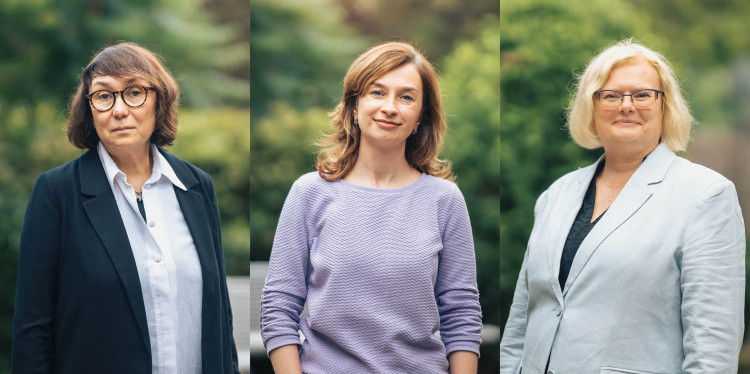
University provides safe environment for researchers at risk
The University of Münster has long been committed to helping researchers at risk who are no longer able to work in their home countries due to persecution or violence. The University of Münster's current application for support from the Philipp Schwartz Initiative was once again successful: with funding of around 263,000 euros, three female researchers at risk or refugees will be able to continue their careers in different research groups at the University of Münster for 24 months.
At a celebration, Prof. Dr. Michael Quante, Vice-Rector for Internationalization, Knowledge Transfer and Sustainability, presented the certificates to three female researchers from Russia and Ukraine. "The University of Münster is a place of science and peace," he emphasized. "We are delighted that, together with the faculties, we are offering the researchers a safe environment in which they can continue their work."
The fellowship goes to the Russian Prof. Dr. Elena Marasinova, who works at the Chair of Prof. Dr. Ricarda Vulpius in the Department of Eastern European History. She previously worked as a professor at the Higher School of Economics in Moscow, where she fled the country due to political statements and subsequent threats. Two fellows from Ukraine are also receiving funding and have been at the University of Münster since spring 2023: physicist Dr. Anna Kornyushchenko previously worked as an associate professor at Sumy State University and is now conducting research at the Institute of Materials Physics with Prof. Dr. Gerhard Wilde. Germanist Dr. Larysa Kovbasyuk was a professor at the Chair of German and Romance Studies at Kherson State University and is now a researcher at the Institute of German Language and Literature under Prof. Dr. Antje Dammel.
The Philipp Schwartz Initiative was launched by the Alexander von Humboldt Foundation together with the Federal Foreign Office. It enables universities and research institutions in Germany to host researchers at risk on the basis of a full fellowship. At the University of Münster, the International Office is responsible for the central coordination of the fellowship program.
